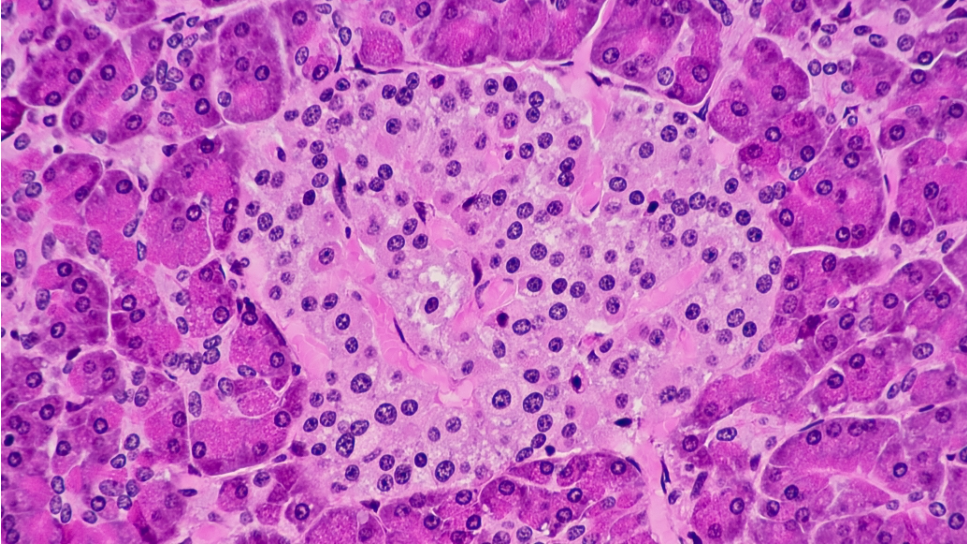Stephen Parker co-lead author of new paper linking gene network and pancreatic beta cell defects to type 2 diabetes

Center for RNA Biomedicine Faculty and Executive Committee Member Stephen C.J. Parker, Ph.D., Associate Professor, Departments of Computational Medicine & Bioinformatics, Human Genetics, and Biostatistics, just released new findings from a recent study on type 2 diabetes regulatory networks co-led by teams from the University of Michigan and Vanderbilt University.
Type 2 diabetes results from a dysfunction of the insulin-producing clusters of β (beta) cells called islets inside the pancreas. In a cell, a protein known as a transcription factor, or TF, controls the rate at which genetic information is transcribed from DNA into mRNA.
TFs regulate – turn on or off – gene expression to ensure proper cell function. Genetic mutations can manifest as irregular gene expression, resulting in improper cell function, which often leads to disease onset.
In the study, Dr. Parker and his fellow scientists were attempting to identify early type 2 diabetes-driving events. They zeroed in on a β cell gene hub with the TF known as RFX6, or regulatory factor X6, which is believed to play a central role in directing cell development of insulin-producing islets.
They demonstrated multiple layers of genetic risk that converge on an RFX6-mediated network to reduce insulin secretion by β cells.
The results, published recently in the article, “Genetic risk converges on regulatory networks mediating early type 2 diabetes,” in Nature, have far-reaching implications for helping identify and validate key regulatory networks and master hub genes for other diseases.
Michigan Medicine covers this story in depth in the Health Lab article, “Study links gene network and pancreatic beta cell defects to type 2 diabetes.“ co-authored by Kelly Malcolm and Jill Clendening.


